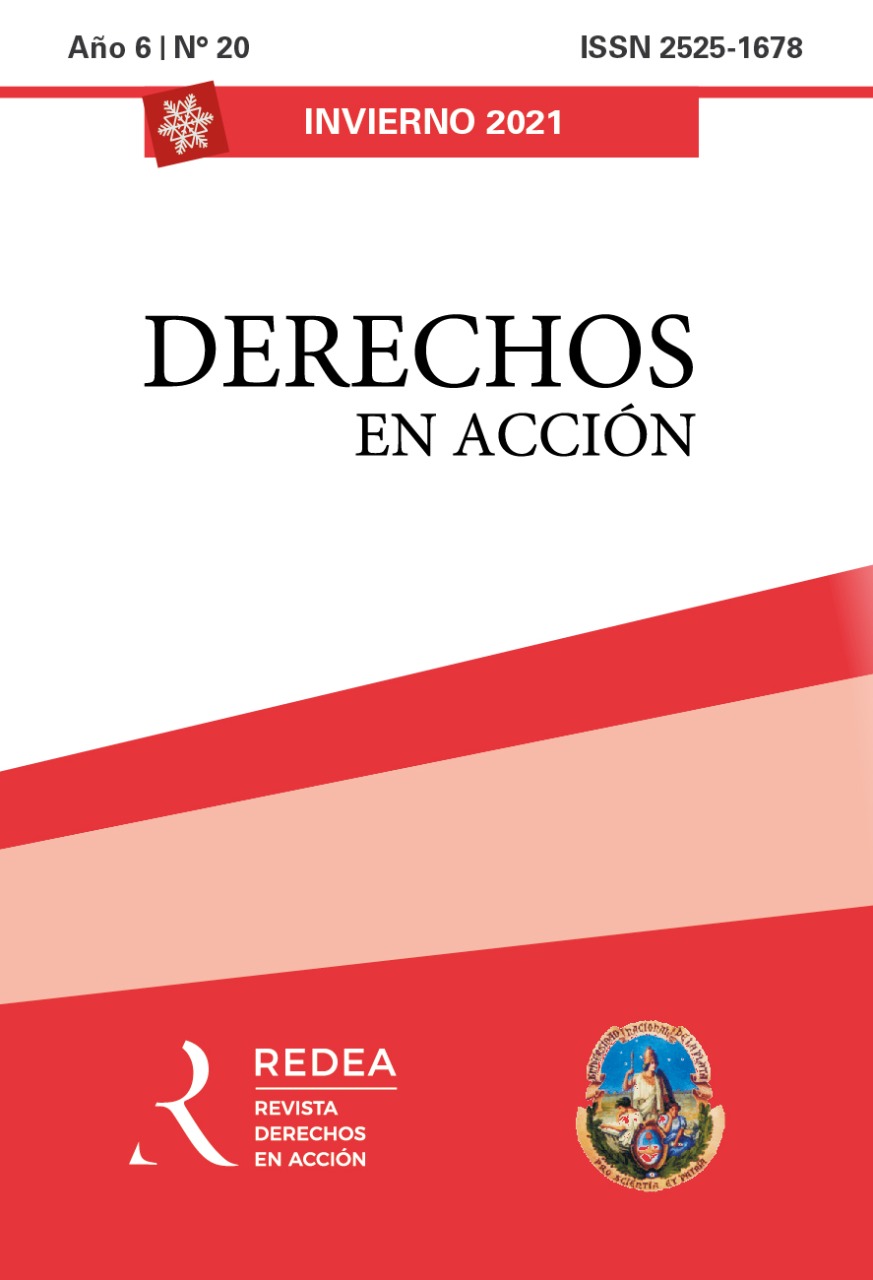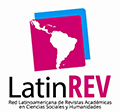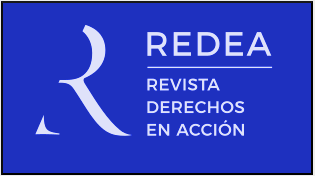Tasas de interés y derechos humanos
Ajustando las primas de riesgo
DOI:
https://doi.org/10.24215/25251678e542Palabras clave:
derechos humanos, desigualdad, tasas de interés, prima de riesgo, deuda, discriminaciónResumen
El presente artículo propone una innovadora interpretación basada en los derechos humanos, en la que las tasas de interés y las primas de riesgo aplicadas en préstamos públicos y privados, puedan ser ajustadas luego de cumplirse el pago completo del capital.
La/os prestataria/os de riesgo pagan más por el mismo préstamo que la/os clienta/es de bajo riesgo debido a las tasas de interés ponderadas por riesgo, las cuales encuentran su justificación en la ausencia o calidad de las garantías reales. Mientras esta perspectiva trata como intercambiables a las garantías reales y a las primas de riesgo, es sólo la garantía real la que se reembolsa una vez culminado el contrato, no así la prima de riesgo. La práctica de cobrar una prima de riesgo además de la tasa preferencial se encuentra justificada legalmente, debido a que sirve como protección de la propiedad del/de la prestamista en un contexto de riesgo, al acelerar la devolución del capital.
Sin embargo, este artículo argumenta que la diferencia de pre[1]cio pierde su justificación económica y legal una vez cumplido el propósito de la prima de riesgo de asegurar el pago del capital. Más aún, la prima de riesgo se convierte en una forma de discriminación económica, ya que injustificadamente impone una mayor carga sobre la/os clienta/es de riesgo por sobre la/os clienta/es de bajo riesgo. Además, este artículo demuestra que dicha prima de riesgo no puede considerarse una mera compensación que un/a prestatario/a de riesgo debe pagar por el incremento del riesgo del/de la prestamista. Según esta interpretación, ajustar la tasa de interés y la prima de riesgo una vez cumplido el pago completo del capital es un requerimiento legal, ya que evita dicha forma de discriminación al asegurarse el mismo tratamiento a toda/os la/ os prestataria/os. Este razonamiento encuentra sus fundamentos en el derecho contractual, el derecho internacional de los derechos humanos y en las regulaciones financieras internacionales. Más aún, este enfoque podría liberar recursos dentro del actual y dramático contexto sufrido a causa del Covid-19, en donde el espacio fiscal y los ingresos de los hogares deben ser destinados a salvar vidas y a garantizar la satisfacción de derechos económicos y sociales básicos.
Referencias
AIZAWA Motoko, BRADLOW Daniel, WACHENFELD ,Margaret (2018). “International Financial Regulatory Standards and Human Rights: Connecting the Dots” en Manchester Journal of International Economic Law.
AIZENMAN V. Joshua, JINJARAK Yothin (2012). “Income Inequality, Tax Base and Sovereign Spreads” en FinanzArchiv / Public Finance Analysis. Editorial Mohr Siebeck GmbH & Co, Vol. 68, No. 4, pp. 431-444. Disponible en: https://www.jstor.org/stable/41819614
ANAND, R.P (2008).Sovereign Equality of States in International Law. Editorial Hope India.
APATHY Peter, IRO Gert Michael, KOZIOL Helmut (2012). Österreichisches Bankvertragsrecht – Band VIII: Kreditsicherheiten, Teil I. Editorial Springer Vienna.
BANK, David, GRIFFIN Jenny (2015). “Financing Out-of-Pocket Medical Debt and Keeping Bill Collectors at Bay” en Aspen Institute. Disponible en:
BANTEKAS, IIias, LUMINA Cephas(2018). “Sovereign Debt and the Right to Development” en Sovereign Debt and Human Right. Oxford University.
BASEL COMMITTEE ON BANKING SUPERVISION (1988). International Convergence of Capital Measurement and Capital Standard.
BASEL COMMITTEE ON BANKING SUPERVISION (2000). Principles for the Management of Credit Risk.
BASEL COMMITTEE ON BANKING SUPERVISION (2010). Basel III: A global regulatory framework for more resilient banks and banking systems. Pp. 30-31.
BASEL COMMITTEE ON BANKING SUPERVISION (2016). Basel Committee Membership. Disponible en: https://www.bis.org/bcbs/membership.htm.
BASEL COMMITTEE ON BANKING SUPERVISION (2018). Policy Development and Implementation Review. Disponible en: https://www.bis.org/bcbs/review_process.htm.
BATEMAN Milford, BLANKENBURG Stephanie y KOZUL-WRIGHT Richard (2018). The Rise and Fall of Global Microcredit: Development, Debt and Disillution. Routledge, Londres
BAZILLIER Rémi, HERICOURT Jérôme (2015). “The Circular Relationship Between Inequality, Leverage, and Financial Crisis” en Laboratoire d’Économie d’Orleans. Working Paper, Nro. 1968.
BLACKENBURG, Stephanie, WRIGHT, Richard Kozul (2016). “Special Edition on Sovereign Debt” en Yale Journal of International Law, vol. 41. Disponible en:http://www.yjil.yale.edu/volume-41-special-edition.
BOHOSLAVSKY Juan Pablo (2020). Report of the Independent Expert on the Effects of Foreign Debt and Other Related International Financial Obligations of States on the Full Enjoyment of Human Rights, Particularly Economic, Social and Cultural Rights en U.N. DOC. A/HRC/43/45. Disponible en: https://documents-dds-ny.un.org/doc/UNDOC/GEN/G20/001/50/PDF/G2000150.pdf?OpenElement
BOHOSLAVSKY Juan Pablo (2020).COVID-19 Economy vs Human Rights: A Misleading Dichotomy, 22 Health and Human Rights Journal, 383.
BOHOSLAVSKY, Juan Pablo (2015). Report of the Independent Expert on the Effects of Foreign Debt and Other Related International Financial Obligations of States on the Full Enjoyment of All Human Rights, Particularly Economic, Social and Cultural Rights. U.N. DOC. A/70/275.
BOHOSLAVSKY, Juan Pablo (2016). Mission Report to Greece, U.N. DOC.A/HRC/31/60/Add.2. Disponible en: https://socialprotection-humanrights.org/resource/foreign-debt-human-rights-ahrc3160add-2-mission-greece.
BOHOSLAVSKY, Juan Pablo (2020). “Development and Human Rights in Bolivia: Advances, Contradictions, and Challenges” en Latin American Policy.
BOHOSLAVSKY, Juan Pablo (2020). Complicity of International Financial Institutions in Violation of Human Rights in the Context of Economic Reforms. 52 Columbia Human Rights Law Review, 203.
BOHOSLAVSKY, Juan Pablo (2021). “The Explosion of Household Debt: Curse or Blessing for Human Rights?” en Human Rights Quarterly, Volume 43, Number 1, pp. 1-28.
BOHOSLAVSKY, Juan Pablo (ExpertoIndependiente), (2018). Impact of Economic Reforms and Austerity Measures on Women’s Human Rights. U.N. DOC. A/73/179.
BOHOSLAVSKY, Juan Pablo, ČERNIČ Jernej (2014). Making Sovereign Financing and Human Rights Work en Hart Publishing.
BRADLOW Daniel (2019).Why Central Banks Need to Take Human Rights More Seriously en Open Democracy. https://www.opendemocracy.net/en/oureconomy/why-central-banks-need-take-human-rights-more-seriously/.
BUTTLER, Morten (2020). “Denmark Extends Business Aid to Increase Spending By $15 Billion” en Bloomberg. Disponible en:https://www.bloomberg.com/news/articles/2020-04-18/denmark-extends-business-aid-to-increase-spending-by-15-billion.
CHANG, Ha-Joon (2004). Economics: The User’s Guide. Editorial Bloomsbury Press.
COMMITTEE ON BANKING REGULATIONS AND SUPERVISORY PRACTICES (1975). Report to the Governors on the Supervision of Banks’ Foreign Establishments.
CULLET, Philippe (1999). “Differential Treatment in International Law: Towards a New Paradigm of Inter-state Relations” en 10 European Journal of International Law.
DEPARTMENT OF THE TREASURY-INTERNAL REVENUE SERVICE (2020). How to Depreciate Property.
DERLEDER, Peter, KNOPS, Kai-Oliver, BAMBERGER, Heinz (2017). Deutsches und Europaeisches Bank- Und Kapitalmarketrecht. Editorial Springer Berlin, Heidelbergg.
DIETTE, Matthew D. (2000). How Do Lenders Set Interest Rates on Loans A Discussion of the Concepts Lenders Use to Determine Interest Rates. Fed. Reserve Bank of Minneapolis https://www.minneapolisfed.org/article/2000/how-do-lenders-set-interest-rates-on-loans.
EL HERRADI, Mehdi, LEROY Aurélien (2019). “Monetary Policy and the Top One Percent: Evidence from a Century of Modern Economic History” en De Nederlandsche Bank, Working Paper, Nro. 632.
EMBERLAND, Marius (2006). The Human Rights of Companies: Exploring the Structure of ECHR Protection. Editorial Oxford University Press.
FERNANDEZ VIDAL, Maria, BARBON, Fernando (2019). “Credit Scoring in Financial Inclusion – How to use advanced analytics to build credit-scoring models that increase access” en Consultative Group to Assist the Poor.
FINANCIAL STABILITY BOARD (2019). Implementation and Effects of the G20 Financial Regulatory Reforms: Fifth Annual Report. Disponible en: https://www.fsb.org/2019/10/implementation-and-effects-of-the-g20-financial-regulatory-reforms-fifth-annual-report/#dashboard.
Funding Mechanisms for COVID-19 Response (2020). United Nations Dept. of Econ. And Soc. Aff.
GALLAGHER, Kevin P. (2021). “The IMF’s surcharges are unfit for purpose - It’s time for a rethink” en Financial Times. Disponible en https://www.ft.com/content/cc82f5bf-36c6-454f-b7f0-a4a18576ff2b.
GEORGIEVA, Kristalina (2020). IMF Executive Board Approves Immediate Debt Relief for 25 Countries, IMF. Disponible en: https://www.imf.org/en/News/Articles/2020/04/13/pr20151-imf-executive-board-approves-immediate-debt-relief-for-25-countries
GOCHT, Rolf (2011). Kritische Betrachtungenzur Nationalen und Internatinalen Geldordnung. Editorial Berlin: Duncker und Humblot.
GOTANDAII, John Yukio (2004). “Compound Interest in International Disputes” en Oxford Comparative Law Forum. Disponible en: https://ouclf.law.ox.ac.uk/compound-interest-in-international-disputes/#fn2anc
GROTIUS, Hugo (1901). The Rights of War and Peace Including the Law of Nature and of Nations. Editorial Kessinger Publishing.
HM REVENUE & CUSTOMS (2016). HMRC Capital Allowances Manual. Disponible en: https://www.gov.uk/hmrc-internal-manuals/capital-allowances-manual/ca10020.
IMF (2020). Fiscal Monitor Report. Disponible en: https://www.imf.org/en/Publications/FM/Issues/2020/04/06/fiscal-monitor-april-2020.
INTERNATIONAL TRADE UNION CONFEDERATION (2020).Over 500 Organisations and Academics Around the World Call on IMF to Stop Promoting Austerity in the Coronavirus Recovery Period. Disponible en: https://www.ituc-csi.org/imf-stop-austerity?lang=en.
KHOURY, Stefanie, WHYTE, David (2017). “How Human Rights Law Has Been Used to Guarantee Corporations a 'Right to Profit’” en The Conversation. Disponible en: https://theconversation.com/how-human-rights-law-has-been-used-to-guarantee-corporations-a-right-to-profit-74593.
KINLEY David (2018). Necessary Evil. How to Fix Finance by Saving Human Rights. Oxford University Press, 3.
LANCHASTER, John (2009). “Outsmarted” en The New Yorker. Disponible en: https://www.newyorker.com/magazine/2009/06/01/outsmarted.
MALPASS, David (2020). Remarks by World Bank Group President on G20 Finance Ministers Conference Call on COVID-19. Disponible en: https://www.worldbank.org/en/news/speech/2020/03/23/remarks-by-world-bank-group-president-david-malpass-on-g20-finance-ministers-conference-call-on-covid-19.
MCLEAY, Michael, RADIA, Amar, THOMAS, Ryland (2014). “Money Creation in the Modern Economy” en Bank of Enland, Quarterly Bulletin 2014 Q1. Disponible en: https://www.bankofengland.co.uk/-/media/boe/files/quarterly-bulletin/2014/money-creation-in-the-modern-economy.pdf?la=en&hash=9A8788FD44A62D8BB927123544205CE476E01654.
MILASI Santo (2013). “Top Income Shares and Budget Deficits” en Centre for Economic and International Studies, Research Paper Series.
MILLER, Howard (2013). Interest Rate Caps and Their Impact on Financial Inclusion. EPS-Peaks.
NOLA Aoife (2014). Economic and Social Rights After the Global Financial Crisis. Cambridge University, Cambridge.
ONU (19 de diciembre de 2019). Guiding Principles on Human Rights Impact Assessments of Economic Reforms. DOC. A/HRC/40/57
ONU (2000). Declaración del Milenio de las Naciones Unidas. DOC. A/RES/55/2.
ORTIZ Isabel, CUMMINS Matthew (2019). “Austerity: The New Normal – A Renewed Washington Consensus 2010-24” en Initiative for Policy Dialogue, Working Paper.
“Francia tampoco rescatará a las empresas registradas en paraísos fiscales” en Página 12 (24 de abril de 2020). Disponible en: https://www.pagina12.com.ar/261931-francia-tampoco-rescatara-a-las-empresas-registradas-en-para.
PERUGINI Cristiano, HÖLSCHER Jens, COLLIE, Simon (2016). “Inequality, Credit and Financial Crises”, en Cambridge Journal of Economics. Cambrige.
PISTOR Katharina (2019). The Code of Capital: How the Law Creates Wealth and Inequality. Editorial Princeton University Press.
RIEFFEL, Alexis (1984). “The Paris Club, 1878-1983” en 23 Columbia Journal of Transnational Law, 83.
RUTSEL SILVESTRE. Martha (2015). The Financial Obligation in International Law. Editorial Oxford University Press.
SOEDERBERG, Susanne (2014). Subprime Housing Goes South: Constructing Securitized Mortgages for the Poor in Mexico. Routledge, London.
SOUTH AFRICAN HUMAN RIGHTS COMISSION (2017).Human Rights Impact of Unsecured Lending and Debt Collection Practices in South Africa.
STICHELE, Myriam Vander(2019).“The Risky Interconnectedness Between Investment Funds and Developing Country Debt” en SOMO Discussion Paper, Center for Research on Multinational Corps.
UNCTAD (2019). Trade and Development Report 2019: Financing a Global Green New Deal.
UNITED NATIONS CONFERENCE ON TRADE AND DEVELOPMENT (UNCTAD) (2020). The Coronavirus Shock: A Story of Another Crisis Foretold and What Policymakers Should Be Doing About It.
VON BERNSTORFF, Jochen, DANN, Philipp (2019).The Battle for International Law. South-North Perspectives on the Decolonization Era. Editorial Oxford University Press.
WILLIAM, Davey (2012).Non-Discrimination in The World Trade Organization. Editorial Brill.
Descargas
Publicado
Número
Sección
Licencia
Derechos de autor 2022 Oliver Pahnecke, Juan Pablo Bohoslavsky

Esta obra está bajo una licencia internacional Creative Commons Atribución-NoComercial-SinDerivadas 4.0.
Todo el material publicado en la revista lo hace bajo una licencia Creative Commons de Reconocimiento-No Comercial-Sin Obra Derivada (CC BY-NC-ND) 4.0



.jpg)






























